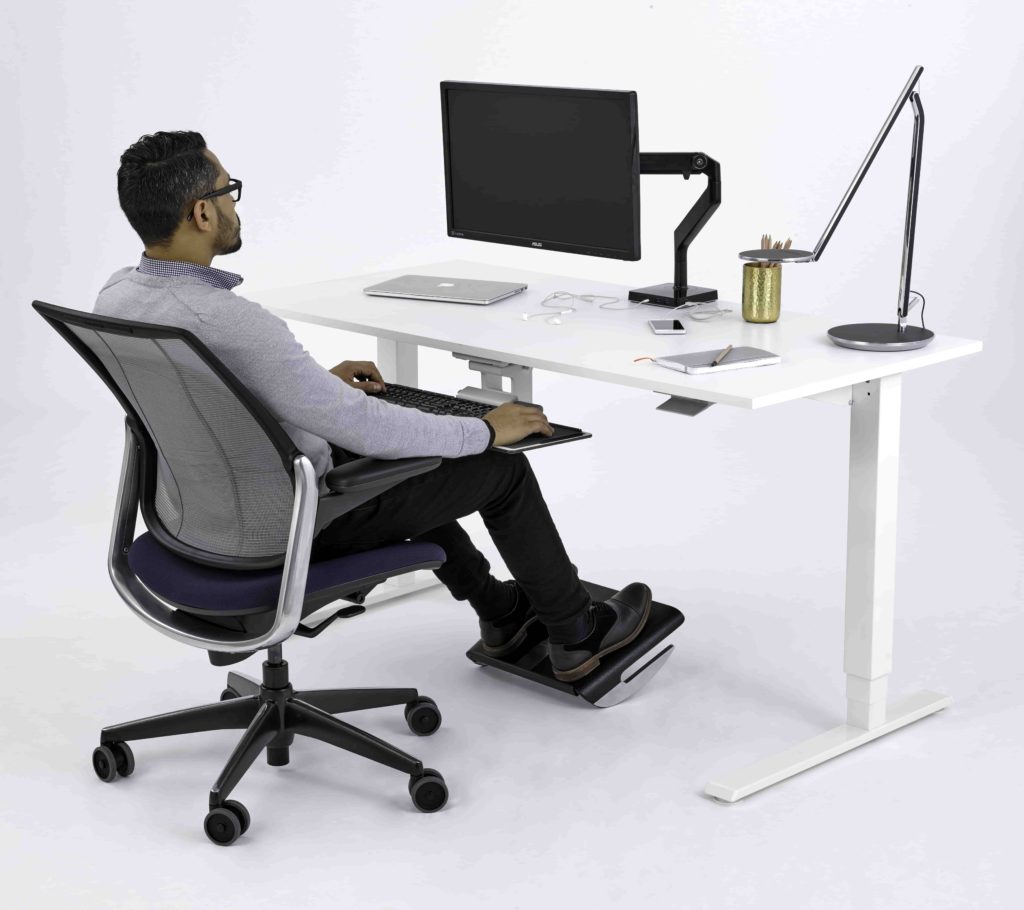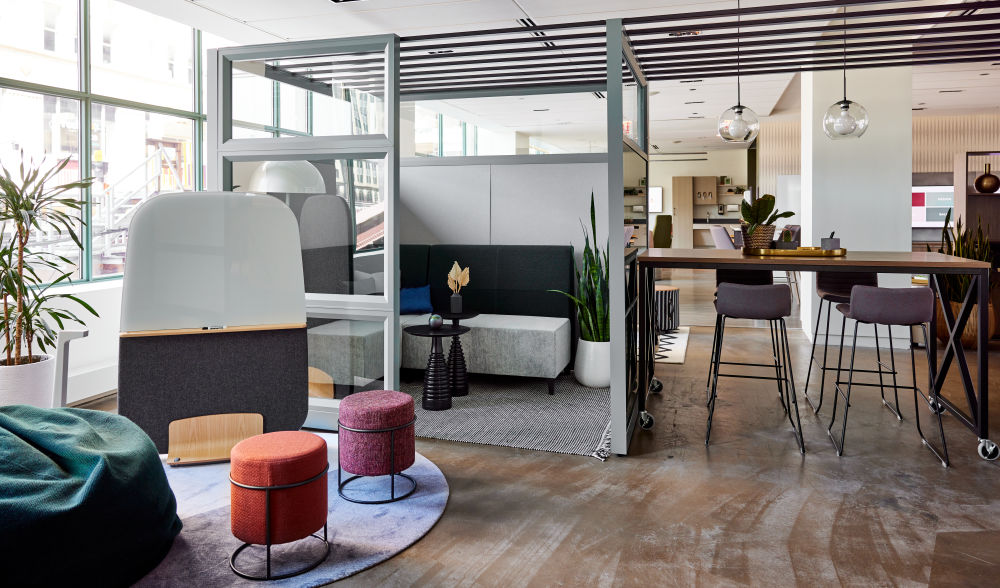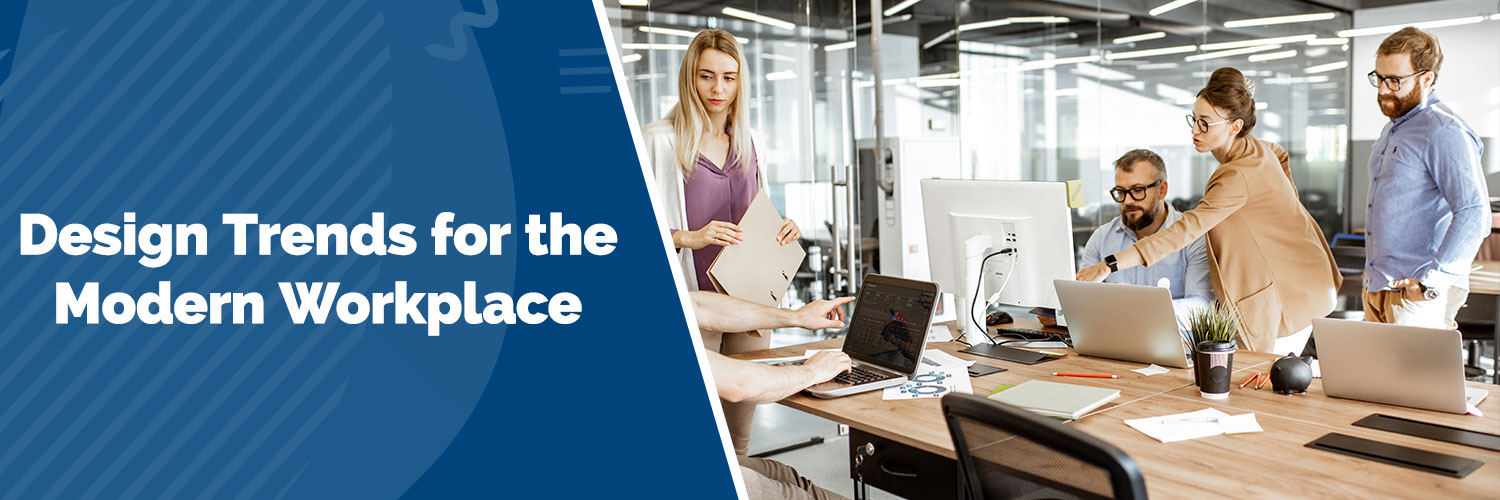First impressions matter. Your workplace design is a reflection of your business, your goals and your company culture. You want your design aesthetic to impress visitors, encourage customers and enhance employee productivity. Believe it or not, workplace design can have quite the impact on employee engagement, morale and even retention. We’ll review a few of our favorite modern workplace design trends like ergonomic office furniture, biophilic design, flexible spaces and inclusivity.
Ergonomic Office Furniture

Whether you prefer to sit at a desk, stand at a desk, walk on a treadmill while you’re working or lounge on a couch, having an ergonomic setup is imperative. When our spines are aligned, we stay focused longer, have improved physical health, breathe better, and lower our risks for strain or injury. Ergonomic furniture can look like adjustable sit-stand desks, well supported seating, floor mats for standing and more.
Biophilic Design
If the past few years have taught us anything about our workspaces, it’s that often some plant life can greatly improve both the environment and workplace morale. Biophilic design is a concept used to increase connectivity to nature, whether direct or indirect. If you have the space for it, consider building a plant wall across from a large window. This way the plants get direct sunlight, and your employees will have plants on one side and natural light on the other. If a plant wall is not available to you, bring in a few small plants. Many plants improve the air quality indoors and can even help minimize humidity. Great options for indoor plants are:
- Snake Plants
- Fiddle Leaf Fig Plants
- Boston Ferns
- English Ivy
- Peace Lilies
Before you create a large indoor garden, be sure to consider the allergies and sensitivities of the people in your workplace. A few plants around the space should be fine if allergies are present. And don’t forget to water them!
Flexible Spaces

While many offices and workplaces had been designed to be fixed use, that doesn’t work in most modern-day work environments. Workplaces can be flexible, outfitted with furniture that can be moved and adjusted to suit the individual needs of employees, visitors, and customers. Being able to pick up a few cubes and turn them into a table or extra seating allows meetings and collaborative sessions to happen on the fly. Having the ability to find your own optimal work environment is key and a great solution to modern workplace problems.
Inclusivity
Inclusive design is about accommodation for need, choice, or flexibility. Designing a breakroom, for example, with a wheelchair bound person in mind will likely not affect anyone who isn’t in a wheelchair but can dramatically improve the workplace experience for any person who is. The same goes for seating—having inclusive seating available can allow a pregnant person to feel both welcome and comfortable. And for neurodivergent persons, providing dedicated quiet spaces to employees who need auditory or sensory deprivation can allow those employees to know they are valued, and that their needs are respected in the workplace.
Contact Gateway to incorporate modern workplace design trends into your new office!

